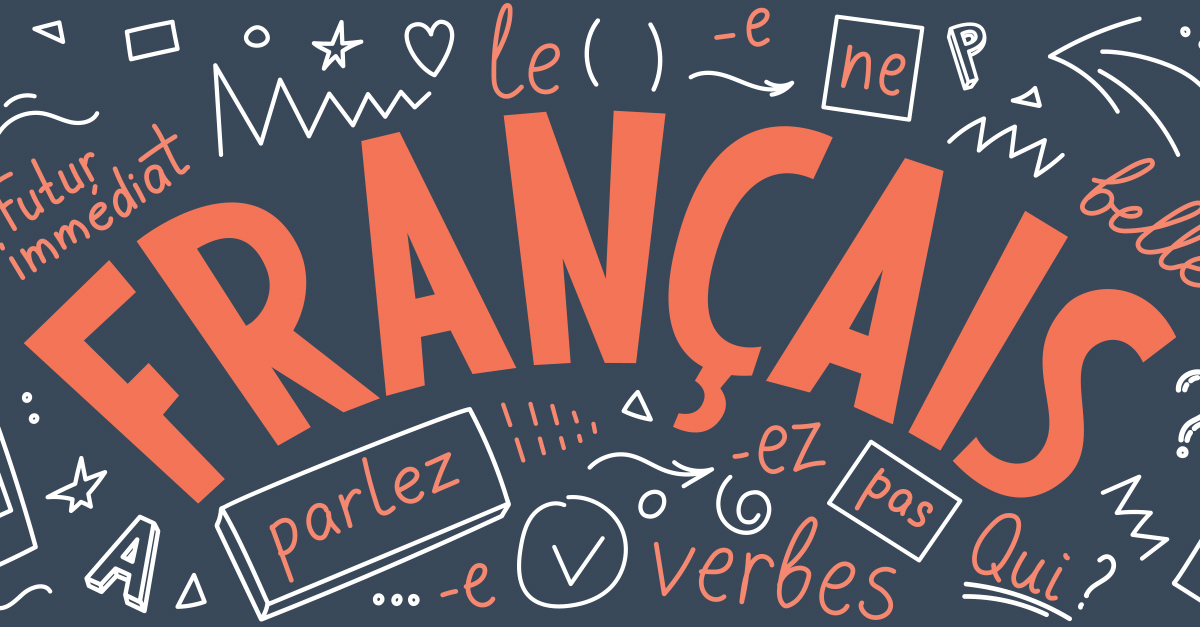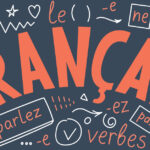
French is a language that’s spoken in various countries. That leads to the existence of different French dialects out there, just like it happens with many other languages. So you have to think of which one you’d like to learn and speak based on your needs, lifestyle and goals.
Is your company relocating you to a French-speaking country? Do you want to expand your business to French-speaking markets? Did you just finish college and want to look up for opportunities in the city of love? Do you travel every now and then for business to Québec? Or are you moving there with all the family just for the fun of it?
There are thousands of important reasons why you might be looking to learn French. That’s great! Learning a second language will bring tons of benefits for both your personal and professional life. But have you sat down to think about which type of French you want to learn? Now, that’s a good question!
Québécois Dialect
A lot of people know Canada as an English-speaking country. But you must know that French is also an official language in some parts of Canada. Québec is one of them. The French dialect from Québec is called Québécois, though people that aren’t from Canada also know it as Canadian French.
The Québécois dialect has more vowel sounds, more specifically 15, that the French spoken in France. This leads to them having more diphthongs. This makes some words sound very differently than those of other types of French.
As expected, the French spoken in Québec also has a lot of influence from the English language. This means they have many words that come from English. For example: “joke” or “canceler” that comes from “cancel”. This is highly important for you to remember, as some vocabulary can change when you’re speaking Québécois.
If you want to have a Québécois accent, we recommend you open your mouth more. Because it’s not a close pronunciation, quite the opposite, actually.
Metropolitan French
This is also known as the Standard French, which means it’s the one you most likely learned or will learn at school. So, if you’re planning on learning this type of French, you’ll probably have an easier time finding a school or teacher that teaches you this dialect.
It’s also the type of French spoken in Paris, and other parts of France. That’s why it’s also known as Paris French. This gives you an advantage when you travel there. You’ll find many people that speak with this accent, so maybe you can practice it with them. After all, the more people speak a specific dialect, the more opportunities you have to practice.
As it happens with many languages, Metropolitan French has changed through the years. People call the old type of Parisian French “le titi parisien”. But even though you can hear it in some old movies, nowadays it’s no longer used. It’s evolved to what we know now as Parisian or Metropolitan French.
Now, what you must know about this accent is that many of the sounds of the words become short sounds. This is due to people speaking fast. This could make it a bit hard for your ear to understand everything clearly, at least in the beginning. With hard work, you’ll get accustomed.
You can notice this in the vowels. There are fewer vowel sounds or diphthongs than in the Québécois dialect. In the Parisian French, they’re more closed.
You’ll also notice it in the “r” sound, which is a bit tight or closed.
Marseillais
This is the French that’s spoken in Marseille, which is in the south of France.
One of the differences with other types of French, especially the Parisian French, relies on the letter “e” at the end of words. This means that people that speak Marseillais pronounce and accentuate the “e” at the end of the words. Meanwhile in other French dialects this doesn’t happen.
On that same line, they also put emphasize on the “ing” sound. For the words that have “in”, they pronounce them like “ing”. For example: “machin” is “maching”.
They also use a particular “tch” sound. For example: “Ticket” sounds like “Tchiket”.
But a very special thing about this dialect is the rhythm. It’s very unique and people that speak the Marseillais dialect tend to do it very fast.
Algerian French
The official languages of Algeria are Arabic and Berber. But there are some people who speak French, though it’s not that common for Algerians to speak it all the time.
Algeria French is common in the media. There are many tv shows that are in French.
Plus, this language is also part of their school lives, as it’s taught there as a second language. They start learning it in elementary school. Some universities even teach some careers in complete French. So even if somebody doesn’t like to speak the whole time in French, they might still know the language.
One of the most particular traits of Algerian French is the “r”, which is rolled, so it sounds stronger.
Swiss French
In Switzerland some regions of the country speak German and some others speak French. Not one is better than the other; they’re equally important. Swiss French has its own words and expressions that sometimes not even native French speakers from other countries understand.
For example: “Faire la pote”, which is used when you’re in a bad mood. “Faire un clopet” means to take a nap. “Natel” is the way they called the cellphones. “Services” is cutlery in Switzerland. This is why if you ever move or visit the part of Switzerland where they speak French, you want to know Swiss French.
There are also some French words that mean something different than in other French-speaking countries. So that could lead to confusion. For example: In Switzerland they call it “déjeuner” for breakfast, while in France this is lunch.
Due to German being another official language of Switzerland, it’s not a surprise that there is some influence of Swiss German words in Swiss French. Like “Poutzer”, which is to clean. Or “action”, which means sale.
You might also find that numbers are easier in Swiss French. In French, numbers are very difficult to learn, especially after sixty, because it’s like they’re compound numbers: Seventy is “soixante-dix” (sixty-ten). But in the French from Switzerland numbers have their own simple words: Seventy is “septante”, eighty is “huitante”, and so on.
You must also know that Swiss French it’s spoken more slowly than Standard French.
There are also some differences in the sounds of the vowels, which leads to some words sounding differently when spoken in Swiss French. Such as “mettre” and “maître”, which in Standard French they’d sound the same.
Belgian French
Belgium has three official languages: German, Dutch, and French. The French spoken in Belgium is not very different from that of Paris. But, of course, there are still some differences and things by which Belgian French distinguishes itself.
Belgium has its own words and expressions that differ from those of other French-speaking countries. For example: In Belgium people say “faire la file” when someone is waiting in a line. While in France, people say “faire la queue”. The cellphone is called “GSM”.
Just like it happens in Swiss French, in Belgian French they have their own simple words for numbers. Seventy is “septante”, eighty is “octante”, and ninety is “nonante”. They’re easier to learn than those from Standard French.
Another difference relies on the way they say “Brussels”. Instead of saying “bruxelles” like other people do, Belgium people say “Brusselles”; it sounds softer.
How to Choose Your French Dialect
Okay, but with all those types of French accents and dialects, how are we supposed to know which one to learn? Should we pick our favorite one? Should we go to the first French school we find and let it be a surprise which French they teach us?
Relax, we have some tips on how to pick which French dialect to learn. There are no wrong decisions, just the best one for you.
Work
What you must consider here is if you’re learning French for work. That would be no surprise. French is a very popular language, spoken in different countries around the world, both by natives and enthusiasts of languages.
Plus, thanks to globalization, bilingualism is a highly demanded skill in different industries nowadays. So, it’s normal to see job vacancies asking for French as a second language skill. As well as bosses asking their employees to learn some French.
If this is your case, think about the type of job you’ll use your French for. For example: If you have to travel consistently to a certain part of the world, you probably should learn the French they speak there. It’ll make your life easier every time you go there.
Or if you have to deal with French clients from different cities and even countries, maybe the Standard French is your best option. Or if you want to get a job with a boss that’s from Quebec, your best ally will be Québécois.
Place of residency
So… Where do you live? Or where are you planning to move? This is a highly important factor on which type of French you should choose to learn. Because now it not only affects your professional life, but also your personal one.
If you have to move to Quebec, then you should probably learn Québécois. Or let’s say you don’t live in a country where the official language is French, but you do live in a neighborhood with many French people. Then maybe learn the most popular French dialect among your neighbors.
After all, you’ll be surrounded by people that speak it. Whether it’s at the office or at the mall, the park, your kids’ school, and so on. You’ll use that specific type of French every day.
Personal life
Maybe you don’t want to learn French because of work or the place you live in. Maybe there are just some more personal factors that influence that decision.
For example: If you have a French-speaking partner, you might want to learn the French dialect your partner speaks. Especially if your parents-in-law are also French speakers. Maybe you already know some words or phrases your loved one taught you, so that’s an advantage for your learning process.
Or what if your kids are learning French at school. You need to help them with homework and provide them an environment to practice their French at home. In that case, learn the type of French they’re learning.
There are thousands of personal reasons why you might want to learn this language and they’re all valid enough to learn it.
Most famous dialect
What if you have many different reasons why you want to learn French? Like all of the above? It would be more complicated to choose your dialect, right? You can try to choose the most important reason to learn French and base your decision on that. But what if they’re all important to you?
Then you might want to learn the most famous dialect; the one that’s more popular. That way, more people from all areas of your life will understand you. You’ll be able to use your French for work, personal issues, get around your neighborhood, and more. You’ll also be able to communicate with people you don’t know yet.
Natives, speakers of French as a second language, and people that are just learning it will understand you. All because you speak the more popular kind of French, which by the way, we truly believe it’s standard French.
Fluency Corp Helps You Speak Like a Native French Speaker
Now that you know all the options you have to speak French, it’s time to choose! For this step you must choose a school that has a teacher that can truly help you achieve your French goals. This includes learning business French for your professional life. And, if we’re allowed to say it, Fluency Corp does exactly that!
We offer corporate language classes completely customized to your job and needs. So, if you tell us you need to learn Québécois for your business trips to Quebec, we’ll help you.
Maybe you need to learn how to write a business email in Metropolitan French, we can also do that. Or if you tell us you need a teacher that knows a specific type of French, we’ll make sure to choose the best one for you. Whatever it is you need, we’re here!
The best of all is that we have native tutors! So you’ll learn from people that know the language inside out, from the correct academic grammar to the everyday, casual expressions.
On top of that, our classes aren’t just for you, but for your teamwork as well! If there’s someone at your company that needs French language classes, invest in them. Helping them improve their French skills is helping your business grow.
Choose between our online or onsite classes. Then, contact us for a free consultation. You won’t regret becoming truly fluent with us!










